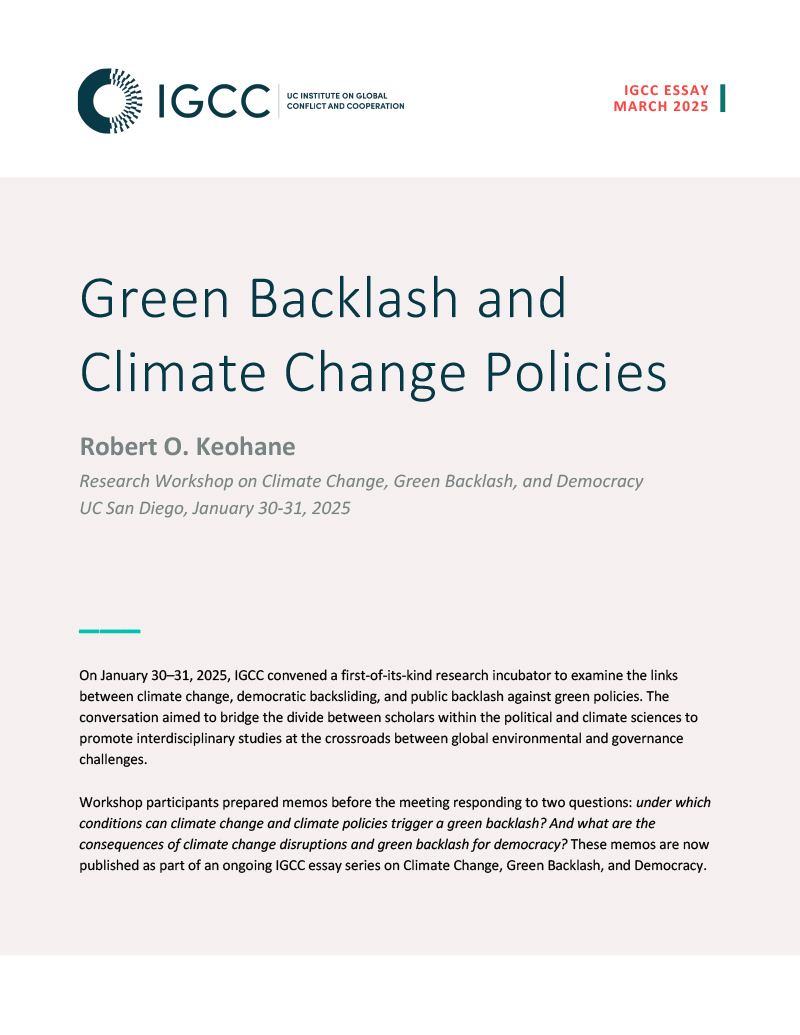Green Backlash and Climate Change Policies

In this essay—part of an ongoing IGCC series on Climate Change, Green Backlash, and Democracy—Robert Keohane, professor of international affairs at Princeton University, offers three hypotheses for the conditions under which climate policy that may be likely to trigger green backlash both at the domestic and international level.
DownloadPolicymakers in the democratic world face a delicate balancing act in attempting to address and mitigate the threats posed by climate change while calibrating solutions in line with voter preferences in order to avoid triggering domestic backlash.
In this essay, Robert O. Keohane, a professor of international affairs at Princeton University, asks: under which conditions can climate change and climate policies trigger green backlash? Keohane’s generates three hypotheses about political backlash more generally. First, for a movement to generate backlash, it must achieve a degree of success that makes it sufficiently threatening to groups supporting the status quo that those groups are able to politically coalesce in opposition. Second, the more targeted the movement, the more likely it is to generate a backlash. In his third hypothesis, Keohane zooms out to the international scene, suggesting that for an international backlash against green policies to materialize, there must be serious climate action by some countries and resistance by others who are sufficiently powerful to challenge the activist coalition.
_______________________
On January 30–31, 2025, IGCC convened a first-of-its-kind research incubator to examine the links between climate change, democratic backsliding, and public backlash against green policies. The conversation aimed to bridge the divide between scholars within the political and climate sciences to promote interdisciplinary studies at the crossroads between global environmental and governance challenges. Workshop participants prepared memos before the meeting responding to two questions: under which conditions can climate change and climate policies trigger a green backlash? And what are the consequences of climate change disruptions and green backlash for democracy? These memos are now published as part of an ongoing IGCC essay series on Climate Change, Green Backlash, and Democracy.